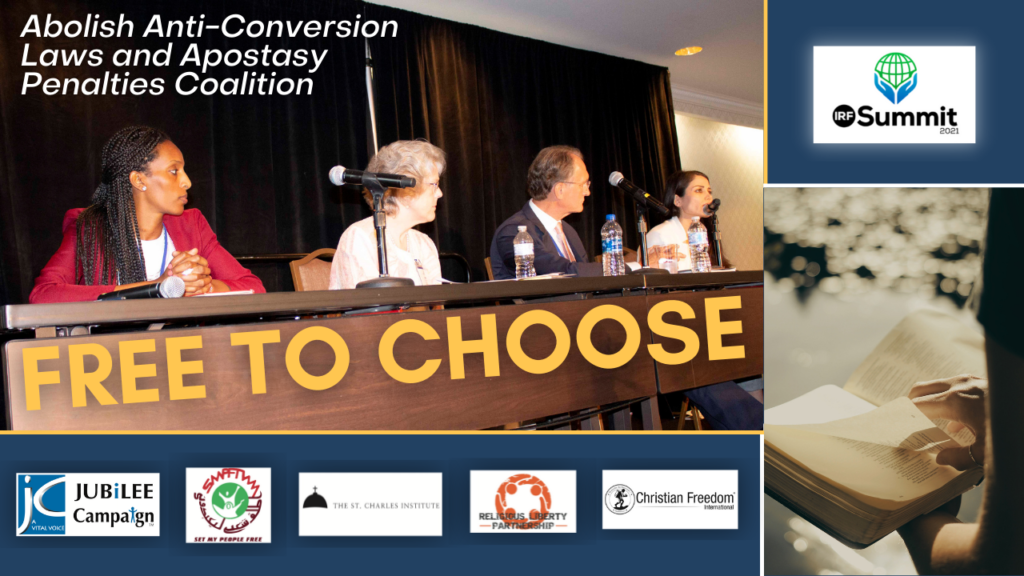When the Freedom to Believe is a Crime
WASHINGTON DC| 21 July 2021
Survivors who escaped torture and death sentences for their religious beliefs are calling for the end of “apostasy” laws.
Over 20 countries criminalize ‘apostasy’ – leaving a state religion – and over 10 countries carry the death penalty.
Mariam Ibrahim was imprisoned, gave birth in shackles, and sentenced to death in Sudan. She joined other survivors and experts at “Free to Choose,” an event exposing countries’ horrific punishments for not believing a state religion and pressure governments to repeal their laws.
Raised a Christian by her mother, Mariam was considered a Muslim since her father was Muslim. Her step-brother sought to punish her and found support in Sudan’s apostasy law.
A court sentenced her to 100 lashes and death for adultery – for marrying a Christian man.
“I was not supposed to practice the Christian faith and not supposed to marry a Christian man,” Mariam said, “and the government laws supported” her accusers.
Mariam’s resilience and an international outcry led to her release.
In Iran, Marziyeh Amirizadeh spent 259 days in jail, surrounded by cries of prisoners being tortured, denied medicines, forced to say Islamic prayers, and covered in a urine-soaked blanket. She was sentenced to be hanged for converting to Christianity.
Cheikh Mkhaitir suffered 2,031 days in an isolated cell in Mauritania and his marriage revoked for “apostasy” after criticising the use of the state religion to justify slavery.
In parts of India, citizens must request government permission to leave the state religion – which is oftentimes rejected – and risk up to three years imprisonment for failing to declare their conversion.
Yet pressure is mounting on countries.
Australia is spearheading a global effort to repeal the death penalty for apostasy and blasphemy. This addresses the worst violators of the freedom to choose, said Ambassador Douma, Special Envoy for Freedom of religion or belief from the Netherlands.
The U.S. Senate unanimously passed a resolution against apostasy laws, Senator James Lankford noted.
In 2020, Sudan repealed its apostasy law. “The repeal of the apostasy law in Sudan shows that the repeal of unjust laws is possible,” said Ann Buwalda of Jubilee Campaign.
“Free to Choose” spotlighted survivors who were harshly punished for adopting, or leaving, a religion or belief, along with legal experts and government officials. It was held during the International Religious Freedom Summit and hosted by Jubilee Campaign, Christian Freedom International, St. Charles Institute, Set My People Free, and the Religious Liberty Partnership.
Photo credits: William O Levi

